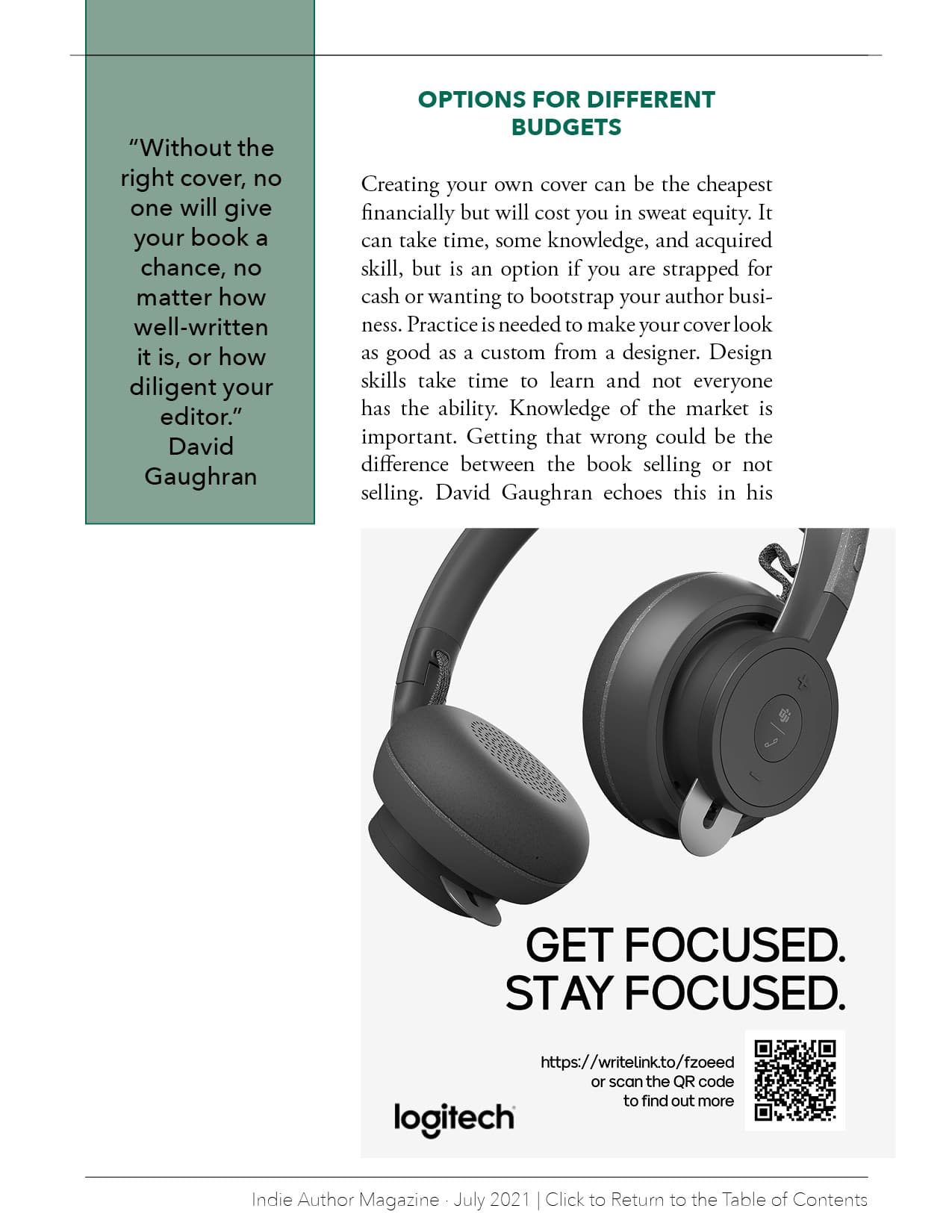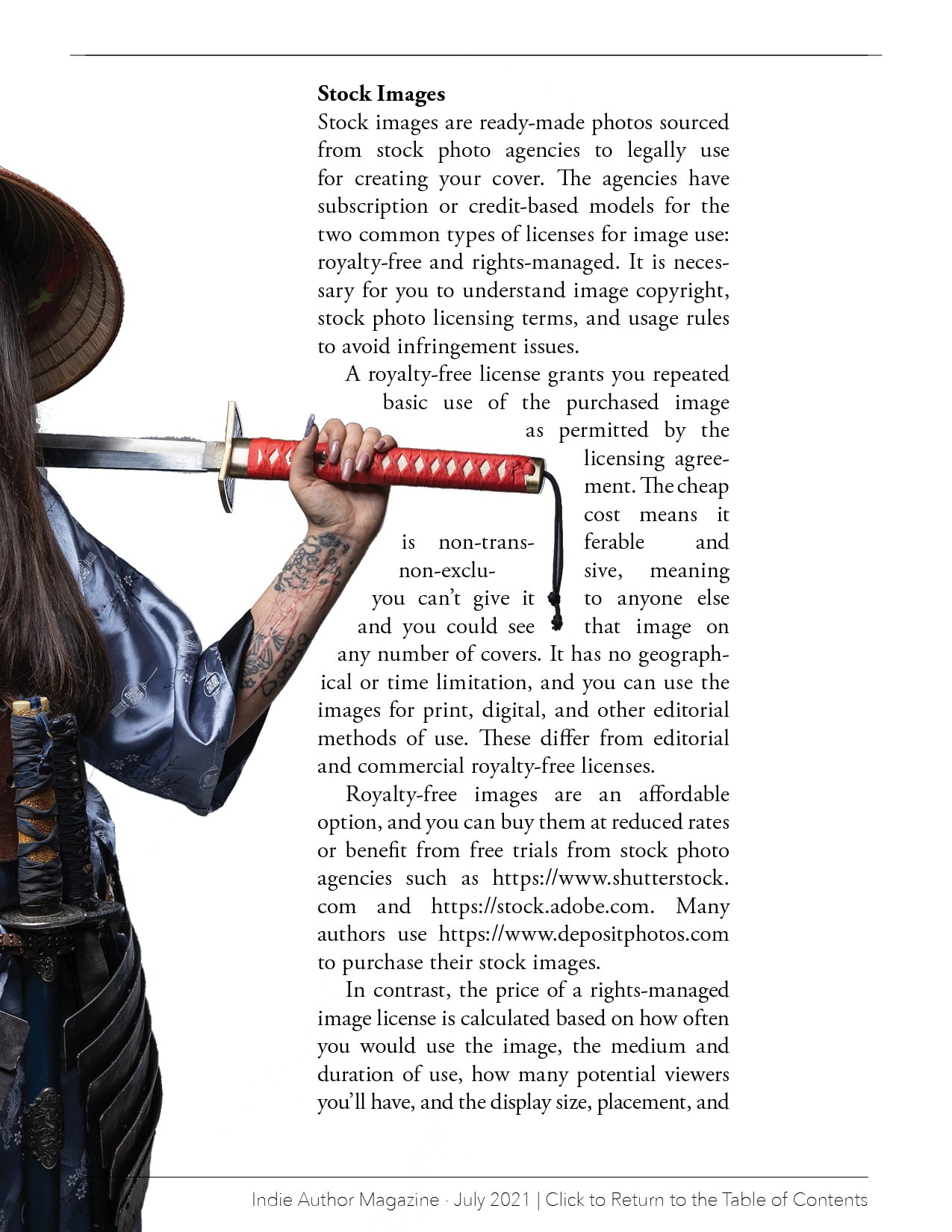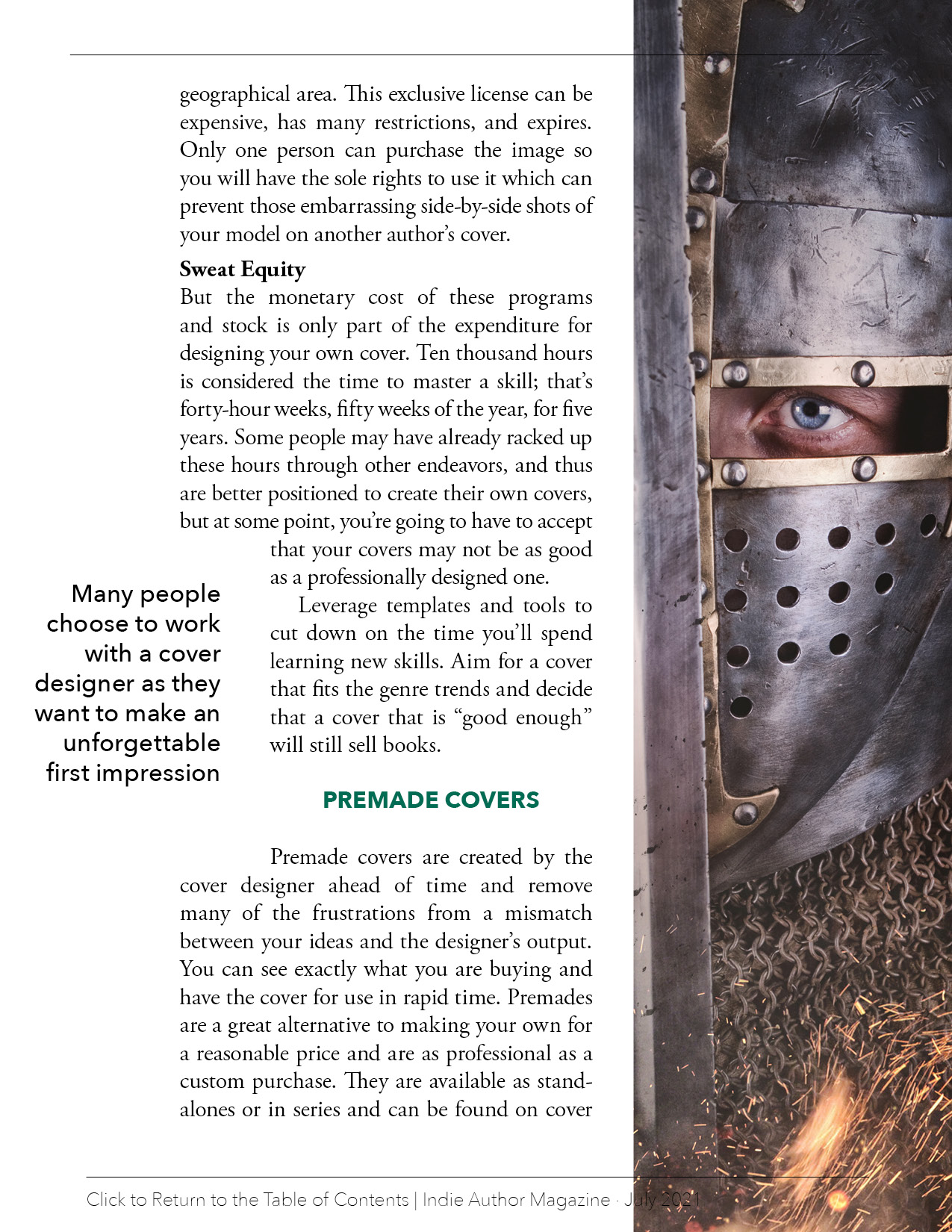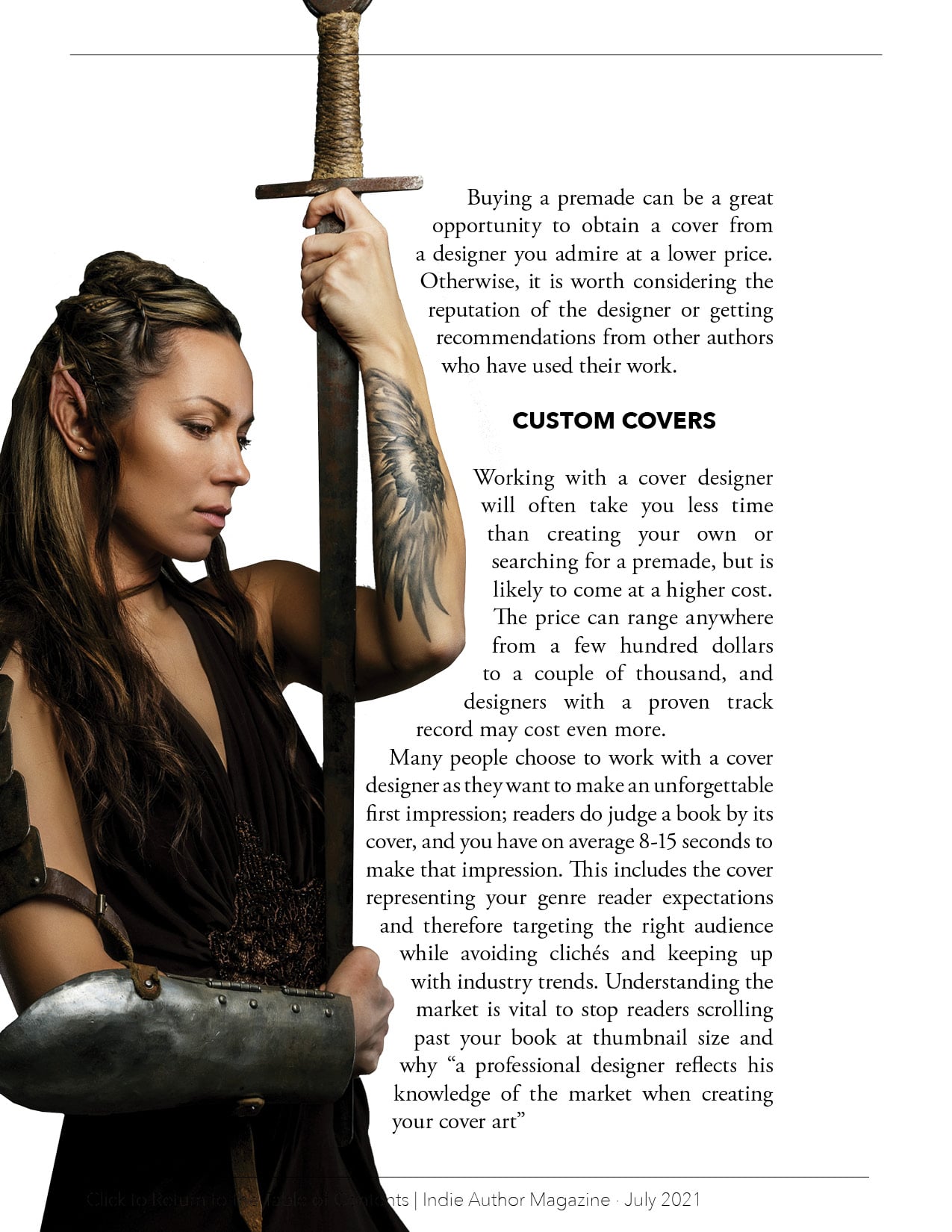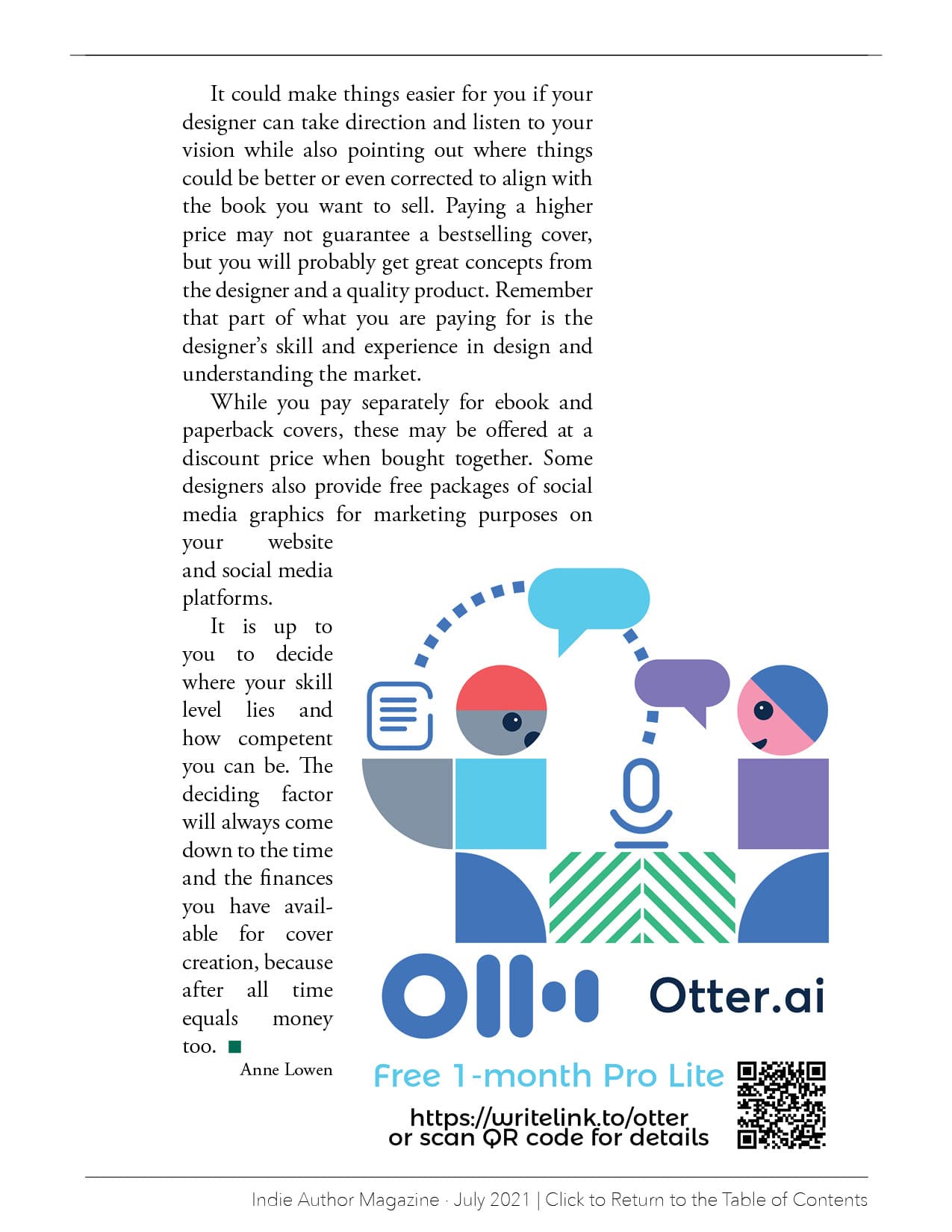The Only Question is How: Sweat Equity or Actual Money?
The book cover is the first impression potential readers will have of your work and is what stops them scrolling as they search for something new to read. Beside considerations of genre, title, niche, and tone, your most important question is, how do you source a cover for your book? Reader expectation is everything and the cover should convey the contents well, but that needn’t come with a high price tag.
In her article “Cover Design Brief,” Anne Ericsson says it well, “There’s a classic project management saying that goes, ‘We have three kinds of services: fast, good and cheap. Pick two.’ When arranging the book cover design brief, consider which goals you’d like to prioritize, because one cannot work under all three constraints.” (https://blog.reedsy.com/cover-design-brief)
So, you have a choice: you can create your own, search and purchase a premade from a cover designer, or commission a custom. Each will save time or money to varying degrees.
Options for different budgets
Creating your own cover can be the cheapest financially but will cost you in sweat equity. It can take time, some knowledge, and acquired skill, but is an option if you are strapped for cash or wanting to bootstrap your author business. Practice is needed to make your cover look as good as a custom from a designer. Design skills take time to learn and not everyone has the ability. Knowledge of the market is important. Getting that wrong could be the difference between the book selling or not selling. David Gaughran echoes this in his comprehensive article “How To Design A Book Cover That Sells,” “Without the right cover, no one will give your book a chance, no matter how well-written it is, or how diligent your editor.” (https://davidgaughran.com/book-cover-design).
DIY Covers
You can design your own covers with stock images, using programs such as Canva, Book Brush, and Crello, which are free to sign up to. Our technology article, (insert title and link), goes into more detail.
The more advanced program Affinity Photo comes with a price tag just under $50, with deals often found cutting that in half. Compare that with the industry gold-standard Adobe Photoshop which when bundled into the Creative Cloud with other design programs runs about $80 per month or $34 per month on its own. These have steeper learning curves, but a wealth of tutorials, hacks, and resources are easily found.
Stock Images
Stock images are ready-made photos sourced from stock photo agencies to legally use for creating your cover. The agencies have subscription or credit-based models for the two common types of licenses for image use: royalty-free and rights-managed. It is necessary for you to understand image copyright, stock photo licensing terms, and usage rules to avoid infringement issues.
A royalty-free license grants you repeated basic use of the purchased image as permitted by the licensing agreement. The cheap cost means it is non-transferable and non-exclusive, meaning you can’t give it to anyone else and you could see that image on any number of covers.. It has no geographical or time limitation, and you can use the images for print, digital, and other editorial methods of use. These differ from editorial and commercial royalty-free licenses.
Royalty-free images are an affordable option, and you can buy them at reduced rates or benefit from free trials from stock photo agencies such as https://www.shutterstock.com and https://stock.adobe.com. Many authors use https://www.depositphotos.com to purchase their stock images.
In contrast, the price of a rights-managed image license is calculated based on how often you would use the image, the medium and duration of use, how many potential viewers you’ll have, and the display size, placement and geographical area. This exclusive license can be expensive, has many restrictions, and expires. Only one person can purchase the image so you will have the sole rights to use it which can prevent those embarrassing side-by-side shots of your model on another author’s cover.
Sweat Equity
But the monetary cost of these programs and stock is only part of the expenditure for designing your own cover. Ten thousand hours is considered the time to master a skill; that’s forty-hour weeks, fifty weeks of the year, for five years. Some people may have already racked up these hours through other endeavors, and thus are better positioned to create their own covers, but at some point, you’re going to have to accept that your covers may not be as good as a professionally designed one.
Leverage templates and tools to cut down on the time you’ll spend learning new skills. Aim for a cover that fits the genre trends and decide that a cover that is “good enough” will still sell books.
Premade Covers
Premade covers are created by the cover designer ahead of time and remove many of the frustrations from a mismatch between your ideas and the designer’s output. You can see exactly what you are buying and have the cover for use in rapid time. Premades are a great alternative to making your own for a reasonable price and are as professional as a custom purchase. They are available as standalones or in series and can be found on cover designers’ websites, cover depositories such as https://thebookcoverdesigner.com and https://coverdesignerdirectory.com, and Facebook groups such as Book Cover Gallery and Book Cover Design Marketplace.
You will have a trade-off between time spent searching for your ideal cover, where all is needed is to add a title and your author name, and paying for a custom. A great premade can be found for half the price of a custom cover or less as some designers knock down their covers to sales prices to sell older unsold stock. Others spend months creating designs for a massive sale on a certain date. In either case, each cover will only be sold once, but due diligence is needed to confirm this.
Buying a premade can be a great opportunity to obtain a cover from a designer you admire at a lower price. Otherwise, it is worth considering the reputation of the designer or getting recommendations from other authors who have used their work.
Custom Covers
Working with a cover designer will often take you less time than creating your own or searching for a premade, but is likely to come at a higher cost. The price can range anywhere from a few hundred dollars to a couple of thousand, and designers with a proven track record may cost even more.
Many people choose to work with a cover designer as they want to make an unforgettable first impression; readers do judge a book by its cover, and you have on average 8-15 seconds to make that impression. This includes the cover representing your genre reader expectations and therefore targeting the right audience while avoiding clichés and keeping up with industry trends. Understanding the market is vital to stop readers scrolling past your book at thumbnail size and why “a professional designer reflects his knowledge of the market when creating your cover art”
It could make things easier for you if your designer can take direction and listen to your vision while also pointing out where things could be better or even corrected to align with the book you want to sell. Paying a higher price may not guarantee a bestselling cover, but you will probably get great concepts from the designer and a quality product. Remember that part of what you are paying for is the designer’s skill and experience in design and understanding the market.
While you pay separately for ebook and paperback covers, these may be offered at a discount price when bought together. Some designers also provide free packages of social media graphics for marketing purposes on your website and social media platforms.
It is up to you to decide where your skill level lies and how competent you can be. The deciding factor will always come down to the time and the finances you have available for cover creation, because after all time equals money too.


